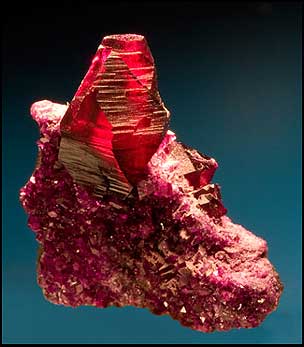Mining information in Turkey and Canada
• Both countries contain an abundance of mineral resources,
• The two respective governments have implemented business-friendly laws and regulations that strongly encourage further investment and development in mining operations in coming years,
• Exports are increasing at a tremendous pace and,
• There is a strong focus in Turkey and in Canada on promoting corporate social responsibility (CSR).
And there is no question that Canadian firms have established a strong a vibrant presence in the Turkish mining sector bringing an abundance of investment, technology and skills to the country.
Focus on Canada
Canada is one of the largest mining nations in the world, operating in 100 countries. Domestically, there are more than 200 active mines in Canada producing more than 60 minerals and metals.
The total value of Canadian mineral exports was $84.5 billion in 2010, accounting for about one-fifth of Canada's total exports. Key exports included aluminum, nickel, copper, gold, silver, uranium, coal, potash, zinc, diamonds, iron, steel and iron ore. The mining and mineral processing industries made significant contributions to the Canadian economy that same year, including more than $12 billion in capital investment.
Canada is also a world-leader in raising equity for mineral exploration and development. In fact, in 2010, almost 60% of the world's equity financing for mineral exploration and mining was raised by companies listed on the Toronto and Vancouver stock exchanges. That year, mining companies headquartered in Canada accounted for more than 40% of global exploration expenditures. These expenditures are expected to exceed $4 billion in 2012.
At the same time, Canada continues to welcome Foreign Direct Investment (FDI) in the sector. Since 2005, for example, the value of FDI in Canada's minerals industry has increased by over 200%. And no wonder FDI is growing in Canada. Among other things, it has one of the lowest tax rates on new business investment among G8 countries and the investment climate is becoming even more favourable. In it’s April 2012 budget, the government announced measures to modernize Canada's environmental review and mine permitting processes. According to an industry representative, “this will accelerate investment, job growth and enhance Canada's international competitiveness and position as a mining superpower”.
Focus on Turkey
Although Turkey ranks 10th in the world in terms of mineral wealth, it stands in 28th place in terms of world mineral production, containing 50 or so different minerals in sufficient quantity to support mining.
To date, most mineral exploration activity in Turkey has been restricted to shallow depths (200-300 m) so that the country's mineral potential lies largely undeveloped. In fact, the mining sector currently accounts for less than 2% of the nation’s GDP. As drilling goes deeper, however, reserve estimates will certainly be revised upwards and the sector will account for a larger proportion of GDP.
In order to address certain deficiencies in existing legislation, the Turkish government revised its mining law in 2010 to both encourage increased mining development in the country while also promoting international safety, environmental, and social standards.
Turkey has emerged as Europe’s largest gold producer and the appetite for Turkey's base metals is growing. As a result of increasing international demand, chrome ore production is on the rise, as is demand for other products employed by the steel industry including iron ore, nickel and zinc. Best known for its industrial minerals, Turkey has enormous amounts of marble, dimension stone and lignite. The country's exports include significant amounts of copper, chromites, gold, zinc and feldspar. And it’s not just foreign demand that’s driving the need for development in the mining sector: Turkey's government is stepping up efforts to exploit coal reserves to serve the country's growing priority to utilize domestic energy sources.
Canadian Firms Active in Turkey
Canadian firms are active players in the Turkish minerals sector with a focus on gold, silver, copper, and zinc operations.
Examples of Canadian mining firms in Turkey include Vancouver-based Eldorado Gold, which has invested heavily in its Turkish subsidiary, Tuprag. The firm’s Kişladağ gold mine is the largest in Europe. Toronto-based Alamos Gold is also active in the Turkish mining sector. Inmet Mining of Toronto operates a very successful Canadian investment in Turkey, the Çayeli Copper-zinc mine. The Toronto firm Silvermet is Turkey’s newest producer of zinc, utilizing Electric Arc Furnace Dust created in the production of steel (Turkey is Europe’s second largest crude steel manufacturer).
Canada’s presence in the country also includes junior mining firms and companies that provide mining equipment and undertake laboratory analysis of mineral samples.
Canadian firms take a strong lead in CSR activities in Turkey, reflecting their view that CSR programs are indispensable elements for sustainable mining activity.
The Role of Polipark, Inc.
Polipark has the resources and the know-how to match Canadian capabilities with the requirements of Turkish firms in all areas of the mining sector.
With staff based in Turkey and in Canada, and with access to key public and private sector contacts with expert knowledge of commercial opportunities and trends in the respective countries, the firm provides timely and useful advice on all aspects of doing business abroad, including business set-up and marketing strategies.
Along with coordinating travel arrangements to Turkey or to Canada, Polipark delivers results-oriented program activities that include seminar presentations and one-on-one meetings that provide maximum exposure and targeted support for visiting business missions.



